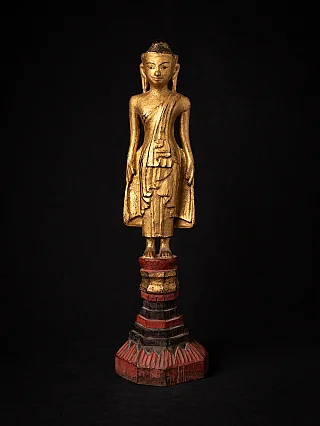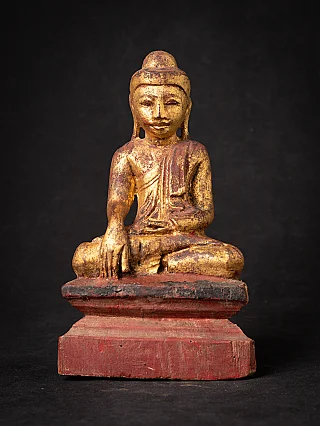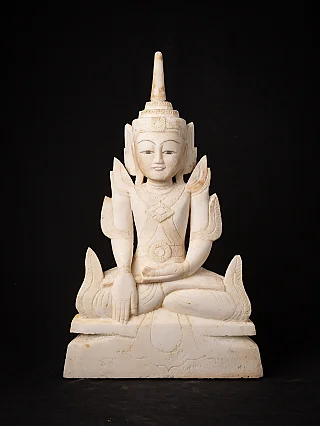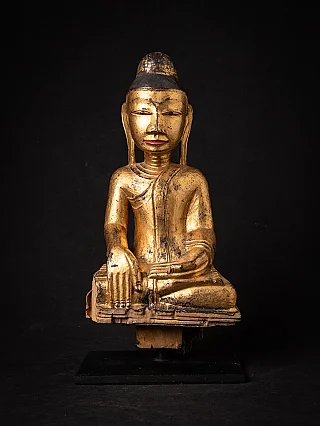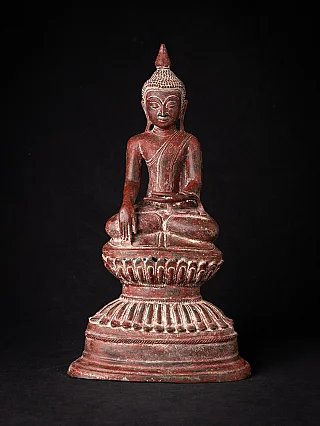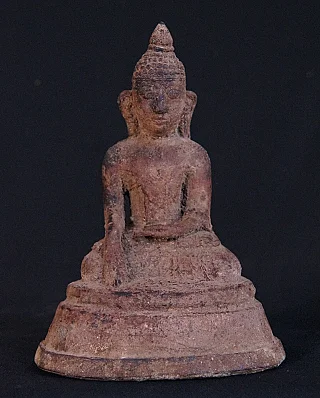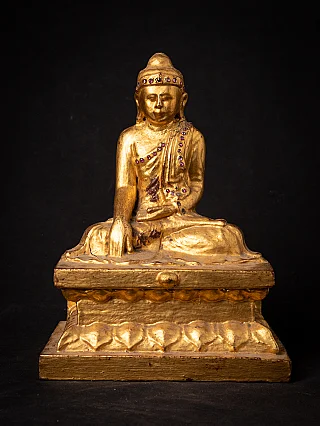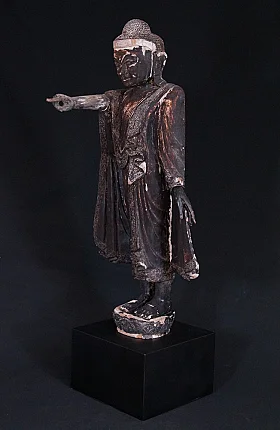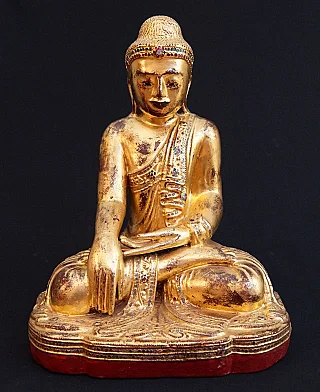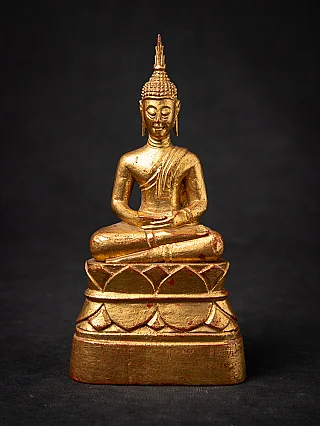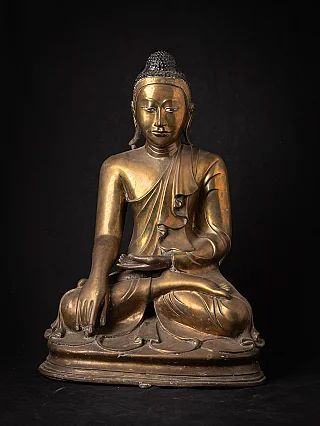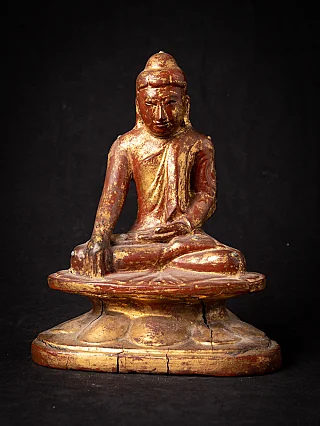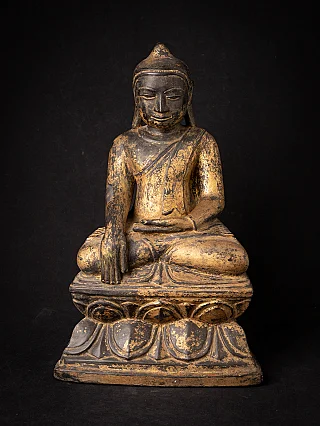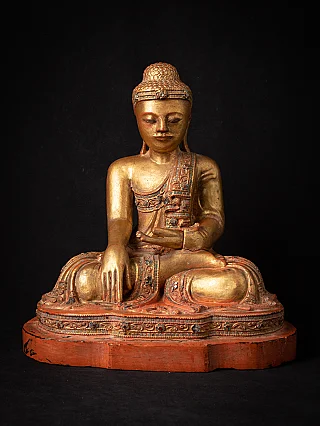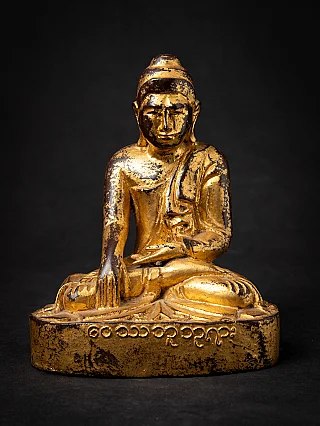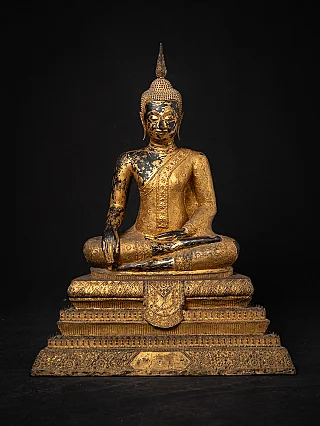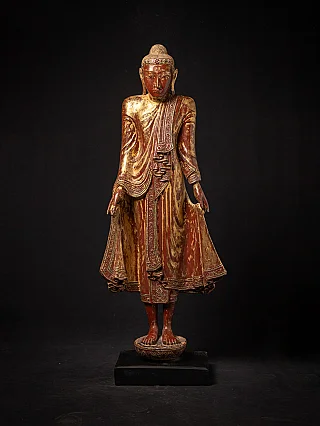Angulimala - Conversion from Murderer to Saint
Author : Peter Vredeveld

Angulimala was one of the disciples of Lord Buddha who used to be a murderer. Angulimala bowed down when he listened to Lord Buddha explain to him his knowledge.
Angulimala is one of the crucial figures in Buddhism, as well as the lifetime of Lord Buddha. The story of Angulimala is described in many Buddhist sutras, especially in the Theravada Sutras. Among all the essential disciples of Gautama Buddha, Angulimala had the most terrible background. Angulimala was popularly known as Daku Angulimala since he was a ruthless killer, and his name means "finger necklace or garland." The story of Angulimala holds quite a significant part because his story tells us how a ruthless murderer became a saint when he met Lord Buddha and was accepted in the monastic order of Sangha.
History
Angulimala's life can be explained in three parts: his life as a student, as a ruthless murderer, and as a monk.
a. As a Student
Angulimala was born into a Brahmin family, and his father was a chaplain to the King of Kosala, King Pasenadi. According to Buddhist texts and scripture, when Angulimala was born, bad omens occurred, like the flashing of weapons and the appearance of the constellation of thieves. So, his father asked the King to name his son. King Pasenadi named him "Ahimsaka," which means harmless one, to change the dark fate that occurred during Angulimala's birth. Ahimsaka was sent to a well-known Brahmin Guru in Taxila for his study. He was outstanding in his studies and was the Guru's favorite. So, he was privileged to stay inside the Guru's house.
But other students were jealous of him and planned to turn the Guru against him. They successfully turned Guru against him by making a scene in which Ahimsaka seduces Guru's wives and states that Ahimsaka is prouder and wiser than the Guru. Thus, in rage, the Guru demanded Ahimsaka the Dakshina or the final gift since he couldn't use physical violence since it is believed that Ahimsaka was as strong as seven elephants. The Guru demanded that Ahimsaka would bring 1000 human fingers from different victims. Scared of such demand, Ahimsaka, horrified, returned to his home in Kosala and started living in the forest.
b. As a Murderer

After hearing such demands, Ahimsaka was half-hearted and started living reluctantly in the forest. But after living some time in the forest, he started attacking the lone travelers, killing them and cutting their fingers and started living in their possessions. At first, he hung all the fingers on the branch of the tree, but birds started picking the flesh of the fingers. So he tied the fingers on a cord and wore them as a necklace. That's how Ahimsaka got the name "Angulimala". In ancient India, dead bodies were not burnt but thrown away in the barren land. Murdering the lone travelers and cutting the fingers of cast dead bodies, he was able to collect 999 human fingers.
Then, the villagers of Kosala requested that the King get rid of Angulimala. King Pasenadi vowed to hunt down Angulimala. In fear and love for his son's life, Angulimala's mother plans to go to the forest to talk to him. Buddha knew about this since he could perceive with his "divine eye." Then, Lord Buddha quickly left Jetavana and set out to find Angulimala. The travelers in the Jalani forest warned him of murder, yet Buddha continued to find Angulimala. When Angulimala saw Lord Buddha, he decided to kill Buddha instead of his mother, whom he saw first and decided to make him his victim. Then he ran to kill Buddha as fast as he could, but he couldn't catch up to Buddha. Angulimala gave up and called Buddha to stop. But the Blessed One replied that it is Angulimala who should stop. Hearing such an answer, Angulimala begged to hear more from Buddha. After hearing Buddha's explanation, he vowed to change his ways and joined the order of Sangha.
c. As a Monk
After becoming a Buddhist monk, King Pasenadi set out to hunt down Angulimala. In this journey, King Pasenadi met Lord Buddha and explained his quest. Then Lord Buddha asked the King how the King would react if Angulimala had changed and became a monk. King Pasenadi replied that he would salute Angulimala and offer him various offerings. When King Pasenadi saw shaved Angulimala, he was astounded and offered to donate robe materials as promised.
The famous verse, Angulimala Paritta, recites the work of Angulimala to help deliver a young woman who was having difficulties giving birth. According to this verse, Angulimala encountered a young woman who had a difficult labor. Then Angulimala asked Buddha how he could ease that young woman's labor.
"Sister, since I was born with the noble birth (became a monk), I do not recall intentionally killing a living being. Through this truth, may well-being be for you and your fetus?"
This was the revised statement after Angulimala pointed out some mistakes in the first statement.
"Sister, since I was born, I do not recall intentionally killing a living being. Through this truth, may well-being be for you and your fetus?"
Then, the woman safely delivered and gave birth to her child.
Even though he was an arahant, Angulimala had to repay for the evil karma and deeds he performed. The people who lost their loved ones by Angulimala still wanted to avenge their loved ones. When Angulimala went to Savatthi to ask for alms, he was attacked by angered people. But with the warning and words of Buddha, they stopped their anger.
According to Theravada and Mahayana, Angulimala's story has proved that even the worst kind of people can repent for their sins and evil karma, become saints, and follow the path of Dharma shown by Lord Buddha.
Share this page

















